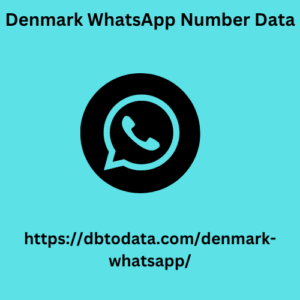Say we advertising scheduling
If your landing pages need to be hardcoded, then logic might suggest that you need to create a new page for each different keyword phrase you’re targeting. In our opinion, though, unless you’re driving extremely high traffic through those pages, this isn’t necessary. Instead, choose some common phrases—likely the most highly searched variants of your keywords—and turn them into headlines. Ideally, the number of pages you’ll need to create will go down depending on the number of keyword phrases you have in your account.
Let’s take an example:software for hourly employees. A basic Denmark WhatsApp Number Data headline could be “Employee Scheduling Software,” which reflects a typical search query—easy and to the point. But the page that uses this headline could easily be used for queries that are close to, but not exactly, that phrase: scheduling employees, tools for employee scheduling, schedule hourly employees, and so on. Try to write headlines that can work for multiple phrases to limit the number of pages you need to make.

And do this while also getting as close as possible to the initial search query. 2. Match the specificity of your potential customers Every time a person conducts a Google search, their query holds a degree of specificity. It’s important that you reflect their demonstrated intent as best as possible. Let’s get into some copy examples. Here are some tips for how you could adjust your copy based on differing degrees of specificity: Query and copy match examples of Google Ads The only piece of copy that’s changed is the first headline—but it creates a much tighter theme with the query and lets your visitors know they’re in the right place. |